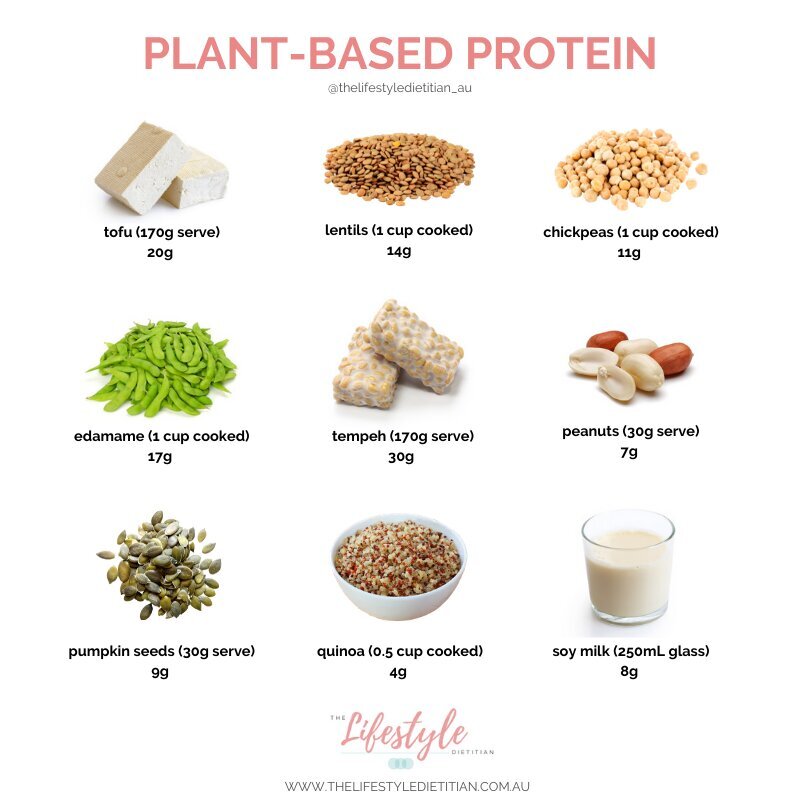Can I Get Enough Protein on a Plant-Based Diet?
With the new year in full swing many of us have set our health resolutions for 2020, and eating a more plant-based diet has become a popular one. As a Dietitian, I am a big fan of this since there are plenty of benefits that come with eating plenty of plant foods, like a high intake of fibre for weight management, boosted gut health and reduced risk of heart disease, diabetes and some cancers. We also know plant-based diets can lessen the impact our eating habits have on the planet. But when planning to go meat-free, one of the first questions I am asked is “will I get enough protein?”. If this is you, read on.
Eating enough protein is important. Our body needs protein to grow and repair not only muscle, but all other body tissues like cartilage, skin, bone and hair to name a few. Protein is also key for keeping our immune system strong, carrying nutrients around our body and making hormones and enzymes which many bodily functions, such as digestion, rely on.
While animal foods are a great source of protein, consuming adequate protein on a plant-based diet is definitely achievable. In saying so, when going meat-free it’s important to remember removal requires replacement.
The best protein-rich plant-based foods include tofu, beans and legumes (think chickpeas, lentils, kidney or black beans), tempeh, soymilk, nuts, seeds and wholegrains. Having a variety of these foods across the day is key. This is because each has slightly different amounts of “essential amino acids” which are the building blocks of protein that our bodies cannot make (so we must get them from food!). It’s also best to choose real wholefoods over faux meat products which are often very high in salt.
A great way to shift towards a more plant-based diet is to begin with your favourite meals and experiment with swapping the meat component for a plant-based food similar in texture. Here are some of my favourite tips to get you started:
For a taco filling, bake tofu which has been crumbled and seasoned with your favourite spices
Make bolognese with lentils or grated tempeh
Mash chickpeas with some hummus, mustard, chopped red onion and pepper as a tuna replacement to add to wraps, salads or on top of a grainy cracker.
Use soymilk as a base for your morning oats, cereal or smoothie, sprinkled with extra nuts or seeds.
Cut up cubes of marinated firm tofu and BBQ for grilled kebabs
Toss a wholegrain like quinoa through your salads and use seeds as a crunchy topping
Choosing a good alternative to replace animal-based sources with plant-based sources of protein in your meals will ensure you are meeting your protein requirements for the day. As an added bonus, most of these protein-rich plant foods are also high in micronutrients such as iron and zinc which may be at risk of deficiency when going plant-based. Keep an eye out for an upcoming blog post on the key micronutrients to pay attention to with plant-based eating!












